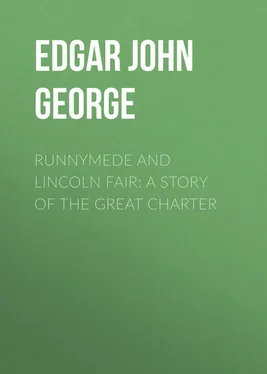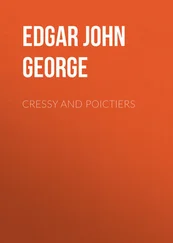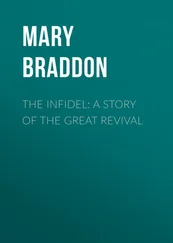John Edgar - Runnymede and Lincoln Fair - A Story of the Great Charter
Здесь есть возможность читать онлайн «John Edgar - Runnymede and Lincoln Fair - A Story of the Great Charter» — ознакомительный отрывок электронной книги совершенно бесплатно, а после прочтения отрывка купить полную версию. В некоторых случаях можно слушать аудио, скачать через торрент в формате fb2 и присутствует краткое содержание. Жанр: foreign_antique, foreign_prose, на английском языке. Описание произведения, (предисловие) а так же отзывы посетителей доступны на портале библиотеки ЛибКат.
- Название:Runnymede and Lincoln Fair: A Story of the Great Charter
- Автор:
- Жанр:
- Год:неизвестен
- ISBN:нет данных
- Рейтинг книги:3 / 5. Голосов: 1
-
Избранное:Добавить в избранное
- Отзывы:
-
Ваша оценка:
- 60
- 1
- 2
- 3
- 4
- 5
Runnymede and Lincoln Fair: A Story of the Great Charter: краткое содержание, описание и аннотация
Предлагаем к чтению аннотацию, описание, краткое содержание или предисловие (зависит от того, что написал сам автор книги «Runnymede and Lincoln Fair: A Story of the Great Charter»). Если вы не нашли необходимую информацию о книге — напишите в комментариях, мы постараемся отыскать её.
Runnymede and Lincoln Fair: A Story of the Great Charter — читать онлайн ознакомительный отрывок
Ниже представлен текст книги, разбитый по страницам. Система сохранения места последней прочитанной страницы, позволяет с удобством читать онлайн бесплатно книгу «Runnymede and Lincoln Fair: A Story of the Great Charter», без необходимости каждый раз заново искать на чём Вы остановились. Поставьте закладку, и сможете в любой момент перейти на страницу, на которой закончили чтение.
Интервал:
Закладка:
“Kinsman,” said Hugh de Moreville, apparently somewhat surprised at Oliver’s bearing, “nothing less than a weighty matter could have brought me hither at this season, and I have come at no small inconvenience. Now I was careful to give you timely advertisement that any day you might be required to go to the king’s court; and I entreat you to tell me, for I am curious to know, what weighty business could have taken you to London at a time when I had signified that at any hour you might receive a summons to repair to the king’s palace as a hostage?”
Oliver bent his brows sternly, and his cheek reddened; but he made an effort to be calm, and succeeded.
“My lord,” said he, “I will deal plainly with you, and answer as frankly as you could desire. I did understand that I was to be delivered over as a hostage to the king for your good faith, and, albeit at the time I would much liefer, had my own inclinations been consulted, have remained a free man; yet, after much pondering the business, I deemed it better not to kick against the pricks; wherefore I am ready to go to King John whenever you wish. But, meanwhile, desiring to speak with my Lord of Salisbury, under whose banner I have ridden, I deemed that there was no indiscretion in going to London with that intent; nor do I now consider that I have erred therein. As ill luck would have it, I found that the earl had left the king’s court to keep the festival of Christmas in his own Castle of Salisbury, and I returned hither to await your summons, which, I repeat, I am ready to obey. My lord, I have said.”
“Youth!” exclaimed De Moreville, regarding his young kinsman not without astonishment at his audacity, “you speak boldly – too boldly, methinks, for one of your years; and I warn you, for your own sake, to be more discreet. But enough of this for the present: to-morrow you depart hence. Meanwhile, I have that to say which is for your ear alone; and, seeing that supper is on the board, I will not delay your eventide meal.”
Occupying two chairs of carved oak, Oliver and De Moreville took their places on the daïs; and the persons of inferior rank having ranged themselves at the lower end, above and below the salt, supper began. But it was a dull meal. Dame Isabel, who, now that her son’s departure for the court was imminent, indulged her grief and gave way to forebodings, did not appear, and the young host and his baronial guest ate their supper almost in silence. Some faint attempts Oliver did make at conversation, but refrained on perceiving that De Moreville, whose temper had been severely tried by their previous interchange of sentiments, answered sullenly and in monosyllables. Oliver could not but ask himself how all this was to terminate.
At length supper came to an end, and De Moreville, assuming a conciliatory manner, and speaking in a kindly tone, expressed his wish to resume the conversation which the meal had interrupted; and, at a sign from Oliver, the domestics disappeared from the hall to spend Christmas Eve elsewhere, the Norman baron’s men-at-arms following the example.
“Oliver,” began De Moreville, with an effort to be familiar and kinsmanlike, “you are about to be placed in a position of great responsibility.”
“On my faith, my lord,” replied Oliver jocularly, “I scarce comprehend you. For to me it seems that I am to be quite passive in the matter; and I frankly own that I little relish the prospect of being mewed up and placed in jeopardy merely to serve the convenience of another.”
“Nevertheless,” continued De Moreville, speaking more deliberately than was his wont, “you will be in a position in which you may make or mar your fortune. You must understand that, in sending you as a hostage to the king, I expect you to attend faithfully to my interest.”
“In what respect, my lord?” asked Oliver gravely.
“Listen, and I will explain,” answered De Moreville, drawing his chair nearer that of his young host. “You know enough, at least, of the struggle between the king and the barons to be aware that it is one of life and death. Now it happens – so faithless is this king – that no man can trust his word, and no man can even guess what a day may bring forth. Mark well everything that happens; keep eye and ear open to all that takes place around you; and if it appears to you that the king meditates treachery, or harbours ill designs towards me and those with whom I am leagued, lose no time in conveying intelligence to me. I will provide the means of speedy communication.”
Oliver’s lip curled with disdain.
“Do you comprehend me?” asked De Moreville quickly.
“My lord,” replied Oliver, after a pause, during which he drew a long breath, “I would fain hope you do not mean my father’s son to play the part of a spy?”
“Nay, nay,” exclaimed De Moreville, his bronzed visage suddenly flushing; “you are hasty; you start aside like a young charger frightened by its own shadow. I ask nothing but what it becomes you to do as my kinsman and my ward. I have said that this is a struggle of life and death; and, such being the case, it is needful to walk warily; and I only ask you so to play your part as to prove yourself worthy of my confidence, and to merit the protection and good-will of the barons of England.”
“But,” said Oliver, after some hesitation, during which De Moreville eyed him narrowly, “remember that I am an Englishman by birth and by descent, and suppose that, in this contest, my sympathies are with the king of England, and not with the Norman barons?”
“By the bones of St. Moden!” exclaimed De Moreville, his nostrils distending and his eyes glittering; “in that case I should assuredly say that you are too much of a madman to merit aught but pity.”
“My lord,” said Oliver calmly, “forbear from using language which only tends to exasperate, and let me speak my mind frankly. My sympathies – so far as they are in operation – are assuredly not with the barons; nor, considering who I am, can I be expected to regard them save as foes of my race. For yourself,” continued the squire, “I say this: you have been a hard guardian, reaping where you have not sowed, and gathering where you have not reaped. But of that I make no complaint, seeing that, I doubt not, you have acted according to law; and now that you ask me to surrender my liberty at your pleasure, I do not refuse. I am ready to go as your hostage to the king. But,” added he warmly, “my honour and my conscience are mine own; and, by the Holy Cross! an Icingla cannot violate the dictates of honour and conscience at the bidding of any Norman baron. I have said.”
De Moreville did not reply. He did not even attempt to reply. But he sat for some time gazing at Oliver as if petrified with astonishment. At length he recovered sufficiently to speak of the necessity of repose; and the domestics having been summoned, and the grace cup served, he was marshalled to “the guest room” by the steward of Dame Isabel’s household. Oliver, however, did not follow the example of his Norman kinsman. Long he sat musing over his position, and marvelling to what fortune it would lead – long after the “Yule log” had been placed on the hearth, and the house was hushed in repose, and even till midnight, did he reflect on the past and speculate as to the future. Then at the hour when, on Christmas Eve – according to the superstition of the period – the ox and the ass knelt down, and the bees sang psalms in adoration of the Redeemer of mankind, Oliver Icingla sought his chamber, prayed earnestly for spiritual guidance in his perplexity, threw himself on his couch, and, in spite of all annoyances, slept the sound and refreshing sleep of youth and health.
At early morn Oliver was aroused from a pleasant dream of gay and sunny Castille by a knock at the door of his chamber, and Wolf, the varlet, entered.
Читать дальшеИнтервал:
Закладка:
Похожие книги на «Runnymede and Lincoln Fair: A Story of the Great Charter»
Представляем Вашему вниманию похожие книги на «Runnymede and Lincoln Fair: A Story of the Great Charter» списком для выбора. Мы отобрали схожую по названию и смыслу литературу в надежде предоставить читателям больше вариантов отыскать новые, интересные, ещё непрочитанные произведения.
Обсуждение, отзывы о книге «Runnymede and Lincoln Fair: A Story of the Great Charter» и просто собственные мнения читателей. Оставьте ваши комментарии, напишите, что Вы думаете о произведении, его смысле или главных героях. Укажите что конкретно понравилось, а что нет, и почему Вы так считаете.












